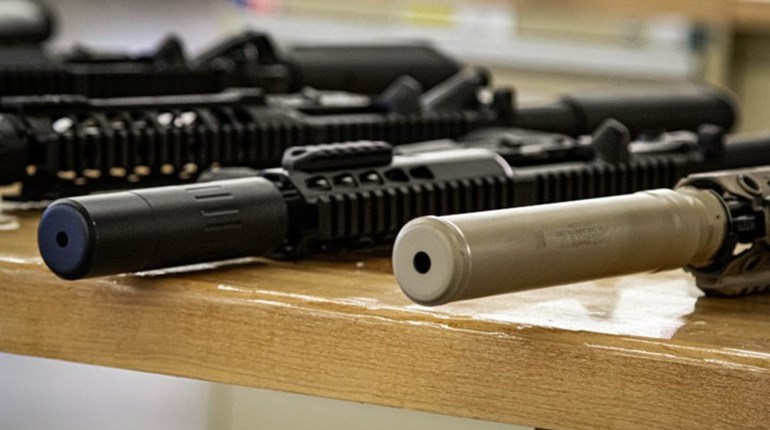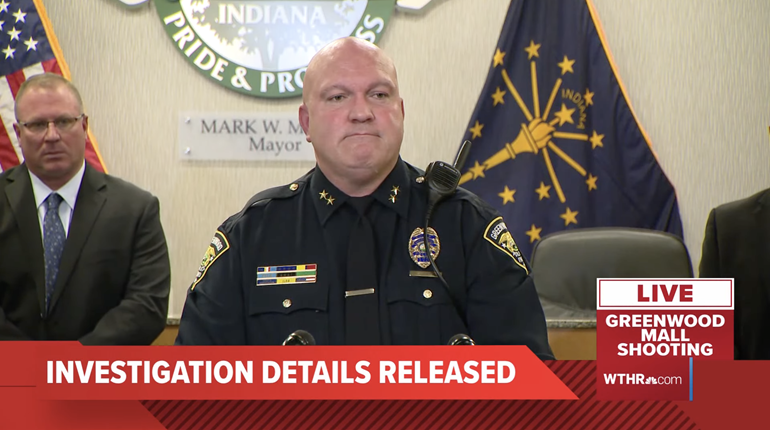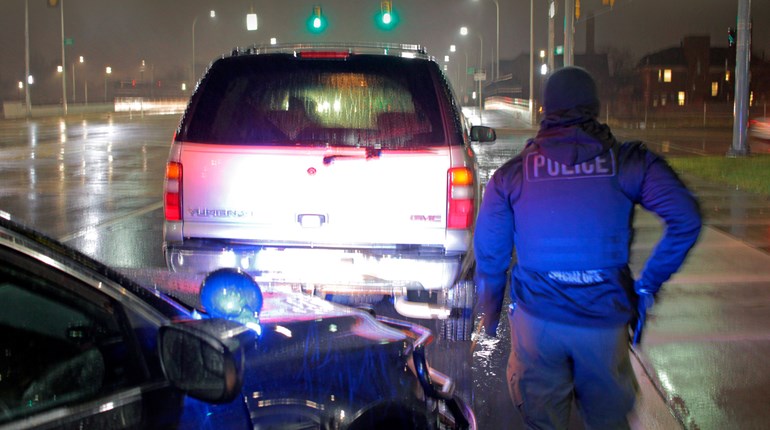
Police officers are human beings—even the best can make mistakes in tense situations. They, after all, have a difficult job. They deal with society’s worst and best. So, because we can be pulled over for speeding, be involved in an accident or otherwise find ourselves in a situation wherein we must interact with law enforcement while carrying concealed, we need to know the law and how to behave amidst fluid legal situations.
To see what can occur, consider what happened to Basel Soukaneh in 2018. Soukaneh immigrated to the United States in 1991. He holds a master’s in business from Syria. He ran his own asset-protection company until 2011. He then began a business management position for discount shopping marts in Barkhamsted, Conn.
On Nov. 12, 2018, just before 9 p.m., Soukaneh was driving his Kia Sorento through the streets of Waterbury, Conn., to view potential residential properties for purchase. In the driver’s-side door was his .45-caliber handgun. His dash-mounted navigation locked up and Soukaneh pulled over to restart the GPS. Unbeknownst to him, the area was known to police officers as a high-crime neighborhood where idling cars on the side of the road are automatically considered to be suspicious.
Soukaneh estimates he was stopped for less than a minute when a patrol officer, David Andrzejewski, stopped with his lights flashing blue and red behind him. Any time he’s stopped by police, Soukaneh says he turns his inside dome light on, puts both hands on the wheel and greets the officer. “I’m that type of person,” he later told lawyers.
He rolled down the window to greet the officer. The officer loudly demanded his driver’s license. Soukaneh pulled his driver’s license and legal carry permit from the visor and handed them to the officer. He says he pointed out the pistol permit to the officer. Soukaneh says the officer didn’t give him a chance to talk after that. At that point, according to Soukaneh, the officer tried to pull him out of the car. As he did so, the officer demanded to know where the prostitute and drugs were, says Soukaneh. His seatbelt was still buckled, so Soukaneh says he had to unbuckle as the officer dragged him out. The officer then began patting down Soukaneh and going through his pockets.
Soukaneh says the officer removed a keepsake flash drive with photos and video of his deceased father, nitroglycerin pills (which the officer claimed as “drugs”) and $320 in cash. As this was going to print, according to Soukaneh, none of the items have been returned.
According to Soukaneh’s attorney, John Williams, the officer was aggressive and forceful from the beginning. He physically dragged Soukaneh to the patrol vehicle. Soukaneh says he was treated like “a bag of trash” and, at 52, with a heart condition and two herniated discs in his back, was crying out in pain as he was thrust sideways into the back of the squad car. The officer performed what Williams called a “warrantless search” of the car and its trunk for what Soukaneh figures was about half an hour. Meanwhile, other police cars arrived.
A police sergeant helped Soukaneh sit up, then told Andrzejewski he had to have a justification for the search. After some deliberation, the police cited Soukaneh for blocking a driveway and released him.
Soukaneh says an attempt to file a written complaint for his missing items was denied. Soukaneh subsequently sued the officer for unlawful arrest and violation of his Fourth Amendment right against unreasonable search and seizure. (The Fourth Amendments states in part that the “right of the people to be secure in their persons, houses, papers, and effects, against unreasonable searches and seizures, shall not be violated.”)

The police department disputes some of Soukaneh’s recounted details. They didn’t return a request for comment by press time, but agreed in court filings to the bare details that Soukaneh was stopped, placed in a patrol car and had his vehicle searched.
Officer Andrzejewski told the court that the stop, detention and subsequent searches were justified, because he wasn’t sure the carry permit was valid, and until then, he had probable cause to cuff and detain Soukaneh.
Even if the arrest was wrong, the department argued the officer should be given qualified immunity—the legal concept which essentially protects government officers from the legal consequences of errors in judgment.
Last fall, U.S. District Judge Janet Arterton disagreed, ruling that no reasonable police officer could have believed they had probable cause to arrest Soukaneh, or that he posed a meaningful threat of being “armed and dangerous” simply by disclosing the firearm and license. Any contrary holding would “eviscerate Fourth Amendment protections for lawfully armed individuals” and “make it practically impossible for the lawful owner of a firearm to maintain a Fourth Amendment right to privacy in his or her automobile,” Judge Arterton wrote.
The judge also denied the officer qualified immunity and agreed with Soukaneh that the arrest was unlawful.
“It’s a pretty simple case,” Williams told America’s 1st Freedom. “The client is a reputable businessman scouting out potential property for potential rental purposes. It was an odd hour of the night, in an unfamiliar neighborhood. He pulled over to check his GPS, and since it was a high-crime neighborhood, his presence excited a little suspicion on the part of the local cop, who had a perfectly reasonable basis for knocking on the door and saying ‘hey buddy, what’s up?’ But once he learned about the permit, he went ballistic.
“The police department claims presenting a facially valid firearms permit gives probable cause to detain someone,” Williams says. “They say the permit could have been fraudulent but they couldn’t tell unless they took the guy in. Well, of course that would mean having a facially valid state permit in the city of Waterbury is meaningless unless it has been checked with the issuing authority. Obviously, that’s wrong, and the judge agreed.”
The case is pending an appeal—the NRA has filed an amicus brief that highlights the intersection of Second and Fourth Amendment rights in this case.
So, How Should a Gun Owner Behave?
First of all, be calm and polite. But this doesn’t mean you need to agree to a search. Most of us have at least a glancing acquaintanceship with our due-process rights. Whether it’s from a studied practice of constitutional law, or if someone has just seen episodes of “Law & Order,” most people generally know that they can’t be forced into confessing and that they have a right to an attorney. But cases such as the ones highlighted here allow us to fill in those gaps a bit and to firm up our knowledge of the laws and legal holdings that affect them.
Circumstances involving Second Amendment rights might also involve constitutional protections involving speech, searches and seizures, self-incrimination, legal representation and due process. Some of these rights only apply where triggered by certain “magic words;” therefore, it’s incumbent upon the armed citizen to know their rights and when to invoke them.
While there are enough legal rulings on searches and seizures to fill a doctorate-level criminal-law class, and therefore we can’t address them all, there are a few rules and concepts at the federal level that you should know.
Generally speaking, a police officer or other government official needs a warrant to search your property. But there are several important exceptions; for example, if you give police consent, leave items in plain view or are being arrested, police don’t need a warrant to search. Moreover, your car is treated differently than a home because vehicles are more heavily regulated, are driven on government roads and pose an increased chance of leaving a scene with evidence or contraband.
An officer is allowed to “stop and frisk” you for weapons if they can articulate a reasonable suspicion that you’re armed and that you’ve committed or will soon commit a crime. They also have broad discretion to pull you over if they have probable cause to believe you’re violating traffic laws. Also, once pulled over (this can vary in different states), an officer can order you to get out without a warrant and, if they reasonably suspect you’re armed and dangerous, they can pat you down. Such searches are generally limited to finding potential weapons; they are not supposed to be fishing expeditions. However, if the officer finds probable cause that you’ve committed a crime, even one unrelated to the reason for which you were stopped or searched, you can be arrested. (Probable cause here essentially means officers need an objectively reasonable basis for believing that a crime was or is being committed.)
To preserve evidence, and an officer’s safety, police may perform a search on an arrested suspect’s person and areas of immediate control without a warrant, including areas of the passenger compartment where a firearm could be hidden.
Generally speaking, police need warrants to search the car further. Courts have thrown out even obvious evidence of guilt because it was improperly obtained. That said, in any situation, you should always comply with all lawful commands from police officers. This includes the “duty to inform” laws in a dozen states that compel you to inform police if you are carrying. (Also, many states have permit information linked to your license plate or driver’s license, so just because you don’t have to tell an officer doesn’t mean they won’t already know.)
However, if not under a legal duty to disclose, Georgia gun-rights attorney Matthew Kilgo advises clients not to. “The key to successful negotiation may be not giving too much information to a law enforcement officer,” Kilgo says. “You need to know your state law and whether you are required to tell officers you have a firearm.”
Pleading the Fifth (and Sixth)
If you are arrested, Kilgo says it’s time to invoke your Fifth Amendment right to remain silent and not incriminate yourself, and your Sixth Amendment right to confer with an attorney. Invoke them immediately and follow them scrupulously.
“A lot of people think they won’t be convicted if an officer didn’t read you your Miranda rights,” Kilgo says. “But that’s not true. Any statement you make can be used against you … . The same U.S. Supreme Court that said you have an absolute right not to incriminate yourself is the same body that says the police can lie to you to obtain a confession.”
Investigators may have different techniques to lull you into talking, Kilgo says, but wait for your attorney.
When the Pennsylvania Supreme Court halted the notion that knowledge of a concealed weapon was a sufficient basis for police to detain someone until a lawful permit could be authenticated, the Court held that “[w]hen many people are licensed to do something, and violate no law by doing that thing, common sense dictates that the police officer cannot assume that any given person doing it is breaking the law.”
Remember that state laws all vary to some degree, and that you’re responsible for knowing the laws governing traffic stops and gun rights in your state. (See nraila.org/gun-laws for state law summaries.)
Also remember that, regardless of the rules, there will always be times when jurisdictions try to bend them. There will also be times you can’t talk yourself out of the ticket, arrest or even unwarranted aggression. But the protections of a competent legal system, joined with calm and competent knowledge of how and when to invoke those protections, is bound to benefit your case if you’re unfortunate enough to be thrust into the legal system.

































